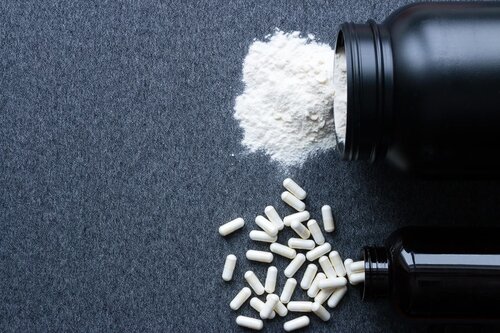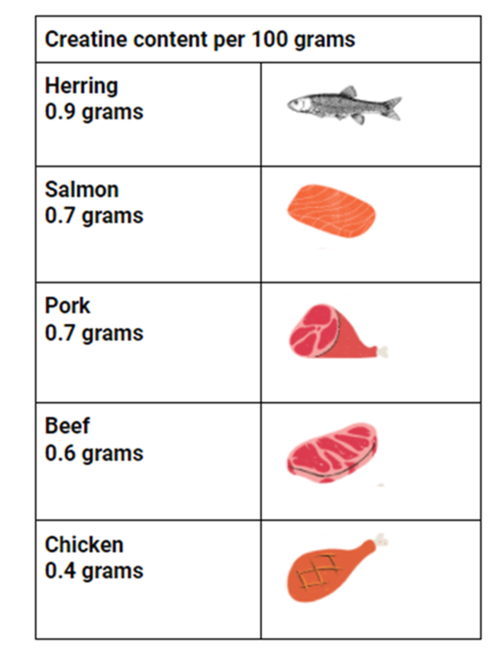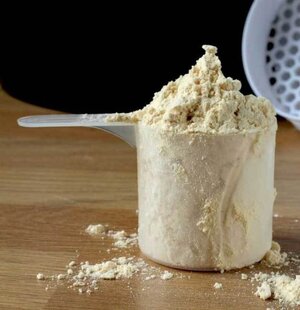
Creatine: Is it Worth the Hype?
**Disclaimer: This article is for information purposes only. Whenever you choose to take a supplement you should first discuss it with a qualified health practitioner.
If you are a regular gym-goer, you’ve probably seen a number of supplements swishing around in shaker bottles. From pre-workout to protein powder, creatine has been slipped into many-a-shake. But is it the secret ingredient missing in your supplement regimen or another overhyped powder?
What is Creatine?
Creatine is an organic compound that is naturally produced by the liver and gets stored in muscle to help produce ATP, our body’s source of energy. ATP is produced through a number of mechanisms but creatine is used specifically during high-intensity exercises like weight lifting and sprint training. In fact, many studies have shown creatine supplementation to be effective in improving muscular strength and power, as well as athletic performance in sports like football, where plays last less than 30 seconds.
In addition to improvements in athletic performance, emerging research shows that creatine may enhance post-exercise recovery, rehabilitation, injury prevention, concussion, and even spinal cord neuroprotection. A scientific review by the International Society of Sports Nutrition found that glycogen and creatine loading prior to intense exercise promoted the greater restoration of glycogen, which is important in promoting muscle recovery and preventing overtraining. These researchers also highlighted improved strength during recovery from exercise-induced muscle damage; this may have implications for athletes who compete multiple times in a short window.

Normally, when people think of increasing their creatine intake the first step is supplementation. However, there are plenty of dietary sources including meat, poultry, and fish.
Who Should Take Creatine

Plant-based diets:
Since plants only have limited amounts of creatine, individuals following a plant-based diet have lower stores and may benefit from supplementation. In fact, vegetarians may have up to 26% lower muscle creatine concentrations compared to omnivores and thus have the most to gain.
Power Athletes:
Any athlete who is involved in strength training or high-intensity exercise may benefit from creatine supplements to enhance performance. However, for longer duration sports like marathon running, creatine has not been shown to have a beneficial effect.
How Much Creatine is recommended?
If you turn to the back of a creatine bottle, most will suggest a 5-gram dose per day. However, more creatine has been shown to enter the muscle if taken using a loading phase followed by a maintenance phase.
Loading Phase
The loading phase helps to rapidly build up creatine stores in the muscle and involves taking a moderate amount several times a day for a week. The right dosage is dependent on body weight and training status so this would be a great time to speak with a qualified dietitian for an individualized plan.
Maintenance phase
Here the dose is reduced to the amount needed to replace natural losses when you urinate. This is also typically set by a dietitian based on your individual needs. Note that taking extra creatine in this phase will not increase creatine stores or performance; it will just end up in the toilet.

Debunking the creatine myths – “creatine builds muscle”
Creatine does not directly increase muscle mass but rather helps by producing extra energy for intense exercise. This can increase your capacity to exercise which in turn, leads to increased strength and muscle mass.
Debunking the creatine myths – “creatine causes dehydration”
Dehydration is common during high-intensity activities and is not a direct result of creatine. In fact, a scientific review found that there is no evidence to support the claim that creatine supplementation in athletes negatively impacts the body’s fluid balance.
Due to its popularity, creatine has been heavily researched and shown to be generally safe and effective for many people. However, individual needs may vary based on your body mass, health status, and training goals. When considering creatine, speak with a qualified registered dietitian and your doctor to see if it is right for you.
References
- Branch, J. D. (2003). Effect of creatine supplementation on body composition and performance: a meta-analysis. International journal of sport nutrition and exercise metabolism, 13(2), 198-226.
- Candow, D. G., Forbes, S. C., Chilibeck, P. D., Cornish, S. M., Antonio, J., & Kreider, R. B. (2019). Variables influencing the effectiveness of creatine supplementation as a therapeutic intervention for sarcopenia. Frontiers in Nutrition (Lausanne), 6, 124. doi:10.3389/fnut.2019.00124
- Cooper, R., Naclerio, F., Allgrove, J., & Jimenez, A. (2012). Creatine supplementation with specific view to exercise/sports performance: an update. Journal of the International Society of Sports Nutrition, 9(1), 33.
- Haff, G. G., Kirksey, K. B., & Stone, M. H. (1999). Creatine supplementation. Strength & Conditioning Journal, 21(4), 13.
- Kreider, R. B., Kalman, D. S., Antonio, J., Ziegenfuss, T. N., Wildman, R., Collins, R., Candow, D. G., Kleiner, S. M., Almada, A. L., & Lopez, H. L. (2017). International society of sports nutrition position stand: Safety and efficacy of creatine supplementation in exercise, sport, and medicine. Journal of the International Society of Sports Nutrition, 14(1), 18-18. https://doi.org/10.1186/s12970-017-0173-z
- Lee, C. L., Lin, J. C., & Cheng, C. F. (2011). Effect of caffeine ingestion after creatine supplementation on intermittent high-intensity sprint performance. European journal of applied physiology, 111(8), 1669-1677.
- Lopez, R. M., Casa, D. J., McDermott, B. P., Ganio, M. S., Armstrong, L. E., & Maresh, C. M. (2009). Does creatine supplementation hinder exercise heat tolerance or hydration status? A systematic review with meta-analyses. Journal of athletic training, 44(2), 215–223. https://doi.org/10.4085/1062-6050-44.2.215
- Preen, D., Dawson, B., Goodman, C., Beilby, J., & Ching, S. (2003). Creatine supplementation: a comparison of loading and maintenance protocols on creatine uptake by human skeletal muscle. International journal of sport nutrition and exercise metabolism, 13(1), 97-111.